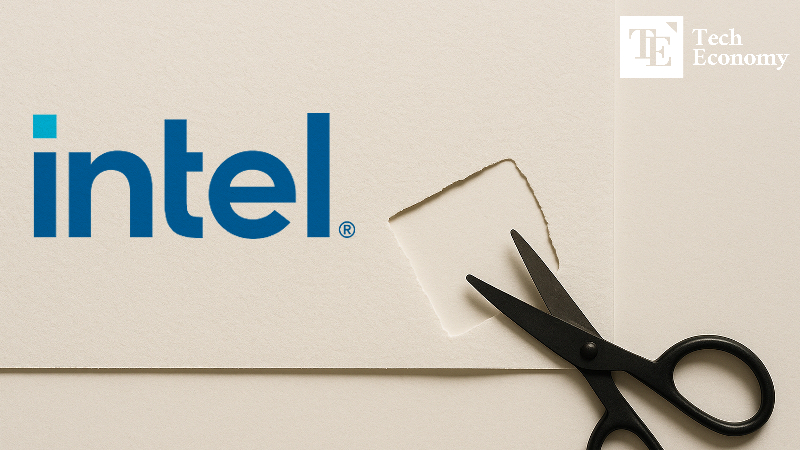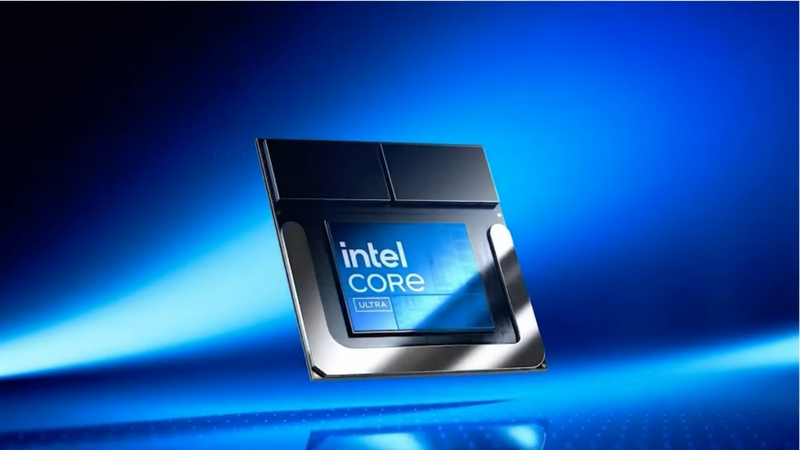Intel Faces Strategic Uncertainty Despite Major Investments from U.S. Government and SoftBank
Input
Modified
15% workforce reduction in the first half, following last year’s cuts Additional layoffs possible amid failure to secure foundry demand New plant projects canceled, targeting 22% downsizing by year-end

Intel is pressing ahead with large-scale restructuring for the second consecutive year, raising concerns over the future viability of its semiconductor manufacturing operations. Following last year’s 15,000 job cuts, the company has again trimmed 15% of its workforce in the first half of this year, with the possibility of further layoffs looming. Having failed to secure meaningful foundry demand, Intel has even canceled new plant construction projects, setting a target to reduce headcount by 22% to about 75,000 employees by year-end.
Linux Support Weakened Amid Workforce Reductions
The wave of layoffs has spilled into Intel’s open-source software support. According to IT industry sources on the 19th (local time), the company’s Linux-related staffing has thinned to the point where critical drivers are being neglected. Linux media outlet Phoronix reported that the developer responsible for the CoreTemp driver, which monitors Intel processor temperatures, has departed, leaving the software in an “orphaned” state. Certain Xeon server processor drivers are in a similar situation, meaning bugs are unlikely to be patched and compatibility with new hardware or Linux kernel versions could go unresolved.
Intel, under CEO Lip-Bu Tan since March, has pursued sweeping divestitures of non-core assets. In a filing to the Securities and Exchange Commission last month, the company acknowledged that, absent sufficient foundry demand, it may halt semiconductor production altogether. The risk of stranded personnel is expected to persist as Intel scales back foundry investments and plant expansion plans.
U.S. Government and SoftBank Move to Acquire Stakes
Meanwhile, interest in direct equity acquisition is mounting. Bloomberg reported that the U.S. government is considering acquiring a 10% stake in Intel, a proposal first raised during a White House meeting between President Donald Trump and CEO Tan on August 11. With the administration prioritizing domestic manufacturing and job creation, analysts see a strong likelihood that Washington will inject funds and seek influence on Intel’s board. Financing via CHIPS Act resources is under discussion.
SoftBank has also pledged to purchase $2 billion in new Intel shares, securing a 2% stake. Chairman Masayoshi Son emphasized that the investment would bolster advanced semiconductor manufacturing and U.S. supply chain resilience, with Intel playing a central role. The announcement coincided with reports of potential U.S. government equity acquisition. Earlier this year, President Trump unveiled the $500 billion “Stargate” AI investment initiative alongside Son, OpenAI, and Oracle.
Should the Trump administration and SoftBank collectively secure close to 30% ownership, they could exert significant influence over board-level decisions, including whether to preserve Intel’s foundry operations. Reuters noted that for Washington, maintaining Intel’s foundry business is indispensable to reducing U.S. reliance on Samsung Electronics and TSMC for advanced chips, potentially justifying direct intervention in corporate governance.

Technical Hurdles with 18A Process Remain a Critical Bottleneck
Despite the influx of capital, Intel must first overcome acute technical challenges. The company’s most advanced 18A process technology, designed to fabricate chips at a 1.8-nanometer node, is suffering from low yield rates. Intel had announced plans to begin mass production of Panther Lake CPUs for laptops this year using 18A, investing billions of dollars in new facilities and equipment upgrades to prove its competitiveness in foundry services.
However, testing has revealed severe yield limitations. As of late last year, only about 5% of chips met internal specifications, with yields improving to roughly 10% by mid-2025. Sources told Reuters that achieving commercially viable yields by Panther Lake’s scheduled fourth-quarter launch remains an uphill battle. Without rapid improvements, Intel may be forced to sell some products at a loss.
Chief Financial Officer David Zinsner disputed the reported figures without offering specifics, while CEO Tan stressed that Intel is leveraging its extensive supply chain network to accelerate yield enhancement. The ultimate success of Panther Lake will likely determine whether Intel can restore credibility and sustain its manufacturing ambitions in the face of intensifying global competition.





















